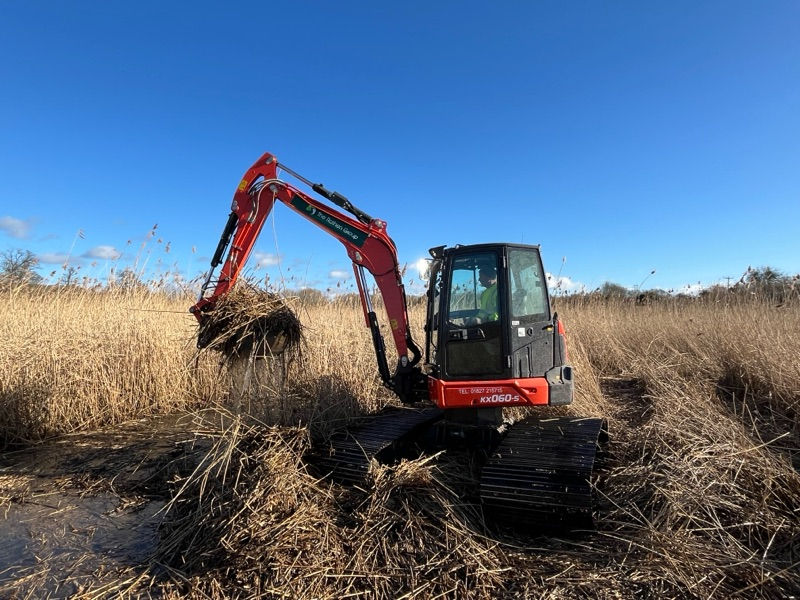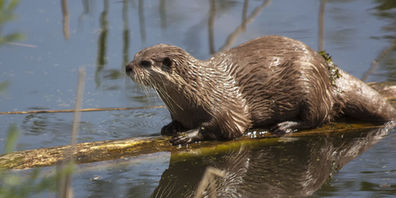
Ecology
Compliance, conservation, and common sense.
We bridge the gap between your project and your environmental responsibilities.
Contract services
Our Specialist Ecology Services
Canals and rivers aren’t just for people – they’re home to many wonderful species, from water voles to the majestic grey heron. The Rothen Group specialises in protecting these species during installations, repairs or restoration projects.
Ecology is central to the nation’s waterways and aquatic infrastructure. We help guide clients through their legal obligations, including protected habitats, species, and planning conditions. Our licensed ecologists perform everything from Preliminary Ecological Assessments (PEAs) and Phase 2 protected species surveys to licence applications and habitat mitigation.
Whether it’s bats roosting under a canal bridge or water voles along a bank, we’ll identify risks and implement workable solutions. We specialise in infrastructure ecology, working with contractors, planners and engineers to minimise delays and meet environmental conditions.
Looking for ecological support? Get in touch with The Rothen Group to speak to a licensed ecologist today.

Dredging
View More

Lock
maintenance
View More

Lock
maintenance
View More

Dredging
View More

Dredging
View More

Lock
maintenance
View More

Lock
maintenance
View More

Dredging
View More

Gallery

FEATURED CASE STUDY
Habitat Creation Coney Meadows, Droitwich
Coney Meadows is part of a nationwide project to restore the UK’s wetlands. Since the 17th century, large areas of reedbeds have been stripped and converted into agricultural land, massively reducing the number of habitats available for wetland animals.

FEATURED CASE STUDY
Changing the Shape of the River Derwent, Derby
Following the storm seasons of 2023 & 2024, the EA set out to review its impact on the UK’s waterways. The River Derwent in Derby was flagged after a sonar scan of its navigation identified a scour hole – a direct result of heavy rainfall pushing sediment downstream.
Ecological surveys aren’t just part of being friendly to the environment – they’re often a legal necessity. We carry out a full range of ecological surveys, including Preliminary Ecological Assessments (PEAs) and Phase 2 protected species surveys.
These assessments cover species commonly found near rivers and canals — from bats and badgers to water voles and nesting birds. They’re designed to cover the requirements of planning authorities and licensing bodies.
What types of ecological surveys do you offer?
If your project involves construction near a canal, river, or wetland, or has the potential to impact wildlife or vegetation, then yes — an ecological survey is likely required. We’ll help you understand what’s needed, when to do it, and how to stay compliant without holding up your build.
Key legislation includes:
Wildlife and Countryside Act 1981 — protects species and habitats from harm or disturbance.
Conservation of Habitats and Species Regulations 2017 — requires licences for work affecting European Protected Species (EPS).
Do I need an ecological survey for my project?
If we find protected species like bats or water voles, we’ll advise on the necessary next steps — which may include a Phase 2 survey, licensing application, or habitat mitigation. Our team handles everything from reporting to implementing practical solutions, so your project stays on track.
What happens if protected species are found on the site?
Yes. We provide full support for ecological licensing — including Natural England applications, method statements, and mitigation plans. We also deliver practical site works, such as exclusion fencing or habitat creation, to meet planning conditions and ecological obligations.
Can you support licensing and mitigation?
As early as possible. Ecological factors, if not properly considered, can affect design, timing, and budget – especially when species surveys are seasonal. The last thing you want is to get through the design stage only to learn your site is a nesting spot for migratory birds.
We recommend getting a licensed ecologist involved during early planning stages to flag potential issues and develop a clear path to compliance.
How early should ecology be considered in a project?
That depends on the type of survey, the species involved, and the time of year. A PEA is typically completed within 1–2 weeks of the site visit. Protected species surveys may take 4–8 weeks or longer, depending on seasonal windows and species-specific requirements.
You’ll also need to consider the time of year. Different species are visible during specific periods, meaning you need to wait until the next active season if you miss them.
How long does it take to get ecological reports for planning?
FAQ
Your questions answered
Our Accreditations
about us
A decade of
The Rothen Group
The Rothen Group is a trusted partner for sustainable infrastructure on the UK’s inland waterways. Alongside engineering and environmental services, we provide expert ecological surveys, mitigation, and licensing support — helping clients stay compliant while protecting valuable habitats.
Our team includes fully licensed ecologists who understand the balance between development and biodiversity. From initial assessments to full species mitigation strategies, we deliver ecological services that keep projects moving — safely, responsibly, and in line with current UK legislation.











